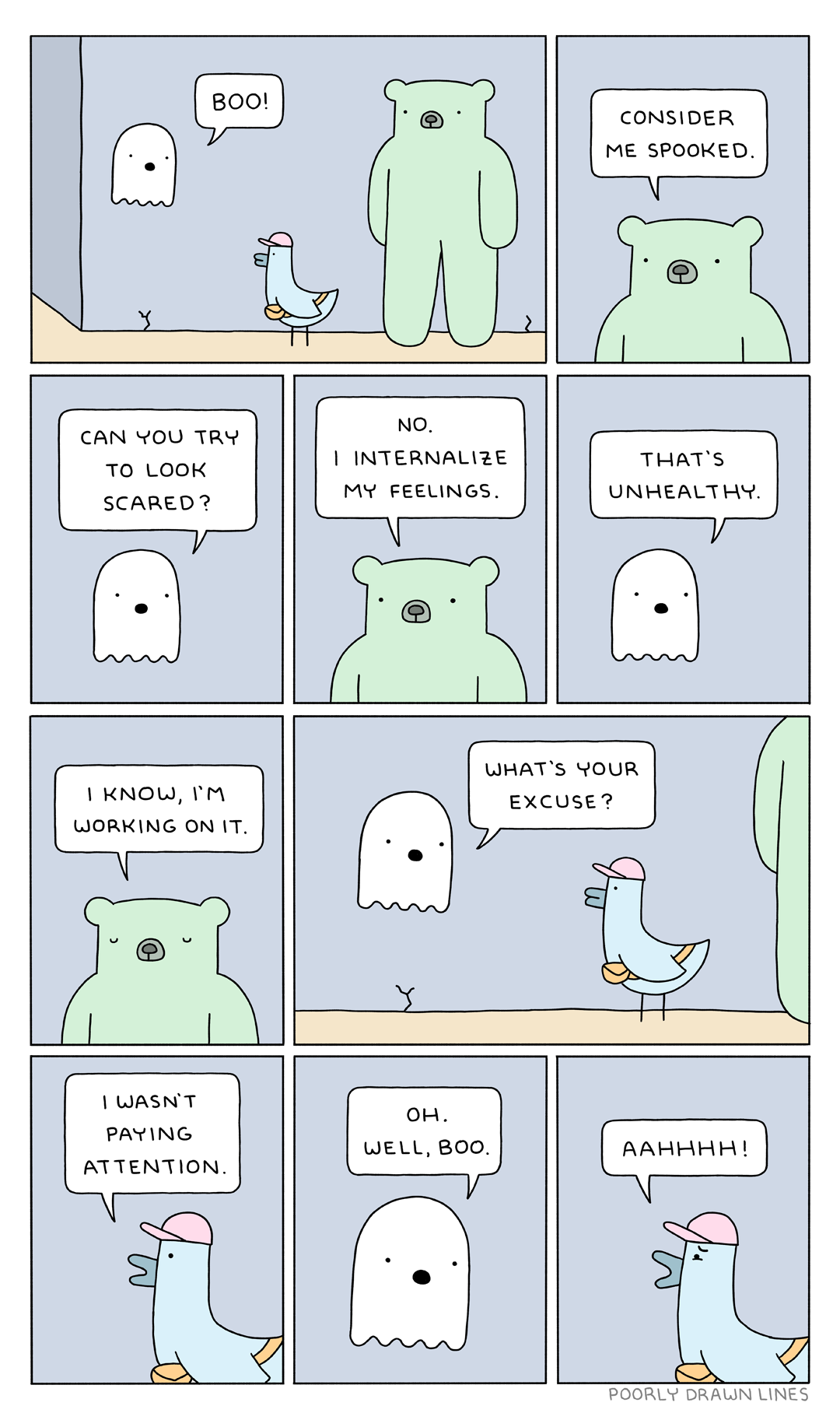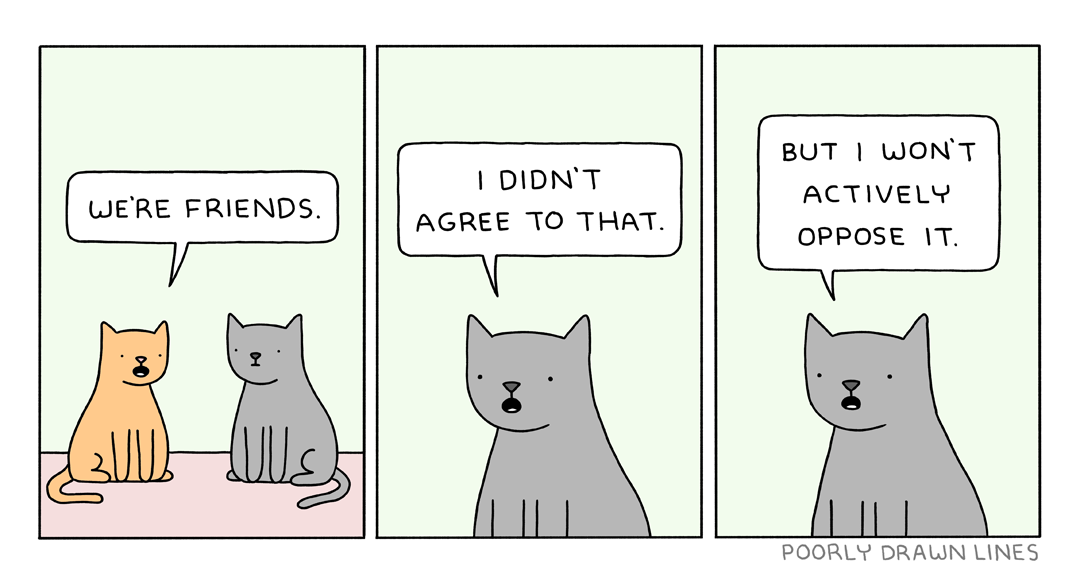
Cowboy Who?
Shared posts
Skills You Need as President of the United States or Skills You Need as a Stepmom?
“Will Chamberlain, a conservative lawyer who worked on Ron DeSantis’s presidential campaign, posted on X that Harris ‘shouldn’t be President’ because she doesn’t have biological children; ‘becoming a step-parent to older teenagers doesn’t count,’ he said." —New York Times, 07/23/2024
1. Integrating into a structure with a history that began way before you ever came on the scene.
2. Finding the balance between respecting time-honored traditions, and having the courage to create new ones.
3. Winning over the members of the house whose objections can be loud, and sometimes downright offensive.
4. Attending a lot of sporting events.
5. Pretending to like them all.
6. Adapting to your new digs, which still contain a lot of memorabilia from former occupants, such as questionable Christmas decorations, and family portraits featuring the “First Lady.”
7. Building trust, especially with those who like to remind you on a regular basis that they didn’t have a say in your selection process.
8. Being down with the kids, but not so down that it becomes embarrassing.
9. Accepting that you’re not necessarily going to be popular, at least not all the time, especially not during midterms.
10. Helping to redefine what constitutes a family.
11. Managing domestic affairs.
12. Ignoring negative stereotypes perpetuated by Disney that cast you as an evil, conniving narcissistic witch with a penchant for thinly plucked eyebrows.
Skills you need as president: 1–11
Skills you need as a stepmom: 1–12
Man running through streets of Paris holding Olympic torch accidentally triggers massive revolt
PARIS – An Olympic torchbearer jogging through Paris en route to the opening ceremony has accidentally triggered a huge uprising amongst the populace as they reflexively took to the streets. “As a lifelong Parisien I’ve always known what to do if I see a torch heading towards the center of the city,” said local shopkeeper […]
The post Man running through streets of Paris holding Olympic torch accidentally triggers massive revolt appeared first on The Beaverton.
Paris Opening Ceremony Features Tedious 45-Minute Discussion Of Godard’s Early Works

PARIS—With more than a billion viewers tuning in from around the world only to find themselves watching a panel of French film scholars and critical theorists, the opening ceremony of the Paris Olympics began Friday with a tedious 45-minute discussion of Jean-Luc Godard’s early works. “We’re half an hour in, and…
Team USA’s Arrival In France Leaves American Basketball Rims Largely Unguarded

WASHINGTON—Warning that interior defenses were spread too thin, experts confirmed this week that Team USA’s arrival in France for the Olympics had left America’s own basketball rims largely unguarded. “In a strategic blunder of historic proportions, the U.S. men’s national basketball team landing in Paris has left an…
Newsom Orders Removal Of Homeless Encampments

California Gov. Gavin Newsom (D) issued an executive order calling on state officials to begin taking down homeless encampments, buoyed by a recent U.S. Supreme Court decision that ruled such “anti-camping” ordinances did not violate the Constitution’s ban on cruel and unusual punishment. What do you think?
Tips For Getting Diagnosed With ADHD As An Adult

As awareness of the condition has grown, so have diagnoses and self-diagnoses of attention deficit hyperactivity disorder in adults. The Onion presents tips for those seeking an ADHD diagnosis.
PornHub Surprises Frequent User With Wife, Loving Family Upon 10,000th Masturbation

SAN DIEGO—In an attempt to reward the loyal fan for his years of support, PornHub reportedly surprised frequent user Jeffrey Mitchell this week with a wife and loving family after he reached his 10,000th masturbation with the adult platform. “Jeff, we can’t thank you enough for all of the loads you’ve busted to…
Comic for 2024.07.26 - Microplastics
No, NASA hasn’t found life on Mars yet, but the latest discovery is intriguing

Enlarge / NASA’s Perseverance rover discovered “leopard spots” on a reddish rock nicknamed “Cheyava Falls” in Mars’ Jezero Crater in July 2024. (credit: NASA/JPL-Caltech/MSSS)
NASA's Perseverance rover has found a very intriguing rock on the surface of Mars.
An arrowhead-shaped rock observed by the rover has chemical signatures and structures that could have been formed by ancient microbial life. To be absolutely clear, this is not irrefutable evidence of past life on Mars, when the red planet was more amenable to water-based life billions of years ago. But discovering these colored spots on this rock is darn intriguing and has Mars scientists bubbling with excitement.
"These spots are a big surprise," said David Flannery, an astrobiologist and member of the Perseverance science team from the Queensland University of Technology in Australia, in a NASA news release. "On Earth, these types of features in rocks are often associated with the fossilized record of microbes living in the subsurface."
Danielle Smith: The loss of Jasper is tragic, but we can all take comfort in how much money the oil industry is still making
EDMONTON – Premier Danielle Smith fought back tears today as she announced that at least 30-50% of the town of Jasper, Alberta has been severely damaged by wildfires but she was adamant that all is not lost, because the Alberta oil industry is still going strong. “This event has been utterly devastating for the residents […]
The post Danielle Smith: The loss of Jasper is tragic, but we can all take comfort in how much money the oil industry is still making appeared first on The Beaverton.
Delight At Receiving Breakfast In Bed Mitigated By Difficulty Of Eating While Horizontal

TAMPA, FL—Explaining that his plate was positioned perpendicular to, rather than parallel with, his mouth, local man Dominic Worley told reporters Thursday that his delight at being served breakfast in bed was greatly mitigated by the difficulty of eating while horizontal. “Naturally, I was thrilled to wake up and…
Hydrothermal Explosion At Yellowstone Blasts Debris Into Sky

A surprise eruption in Yellowstone National Park shot steam, water, and dark-colored rocks and dirt high into the sky, sending alarmed sightseers running for safety. What do you think?
Québec language inspectors check that patients are dying in French
MONTRÉAL – The government of Québec has confirmed that inspectors from the Office Québécois de la Langue Française have been monitoring conversations at a local hospital to ensure that patients dying in an underfunded healthcare system were doing so in the province’s official language. In a statement, Health Minister Christian Dubé clarified: “At a time […]
The post Québec language inspectors check that patients are dying in French appeared first on The Beaverton.
Sherwin-Williams Paint Color or Potential Kamala Harris Running Mate?
“Ms. Harris, 59, could be inclined to turn to someone from a swing state that the party needs to win. She is also likely to turn to a male running mate, Democrats said, to give the ticket balance.”- The New York Times
1. Reliable White
2. Nice White
3. Polite White
4. Incredible White
5. Spare White
6. Smart White
7. Pearly White
8. Conservative Gray
9. Antique White
10. Gorgeous White
11. Natural Choice
Answer Key
1. Sherwin-Williams #6091 and North Carolina Governor Roy Cooper
2. Sherwin-Williams #6063 and Michigan Governor Gretchen Whitmer
3. Sherwin-Williams #6056 and Kentucky Governor Andy Beshear
4. Sherwin-Williams #7028 and Arizona Senator Mark Kelly
5. Sherwin-Williams #6203 and Illinois Governor J. B. Pritzker
6. Sherwin-Williams #6007 and Secretary of Transportation Pete Buttigieg
7. Sherwin-Williams #7009 and California Governor Gavin Newsom
8. Sherwin-Williams #6183 and Utah Senator Mitt Romney
9. Sherwin-Williams #6119 and Vermont Senator Bernie Sanders
10. Sherwin-Williams #6049 and Actor George Clooney
11. Sherwin-Williams #7011 and Pennsylvania Governor Josh Shapiro
Buildings in Jasper in ashes as 'monster' wildfire spans 36,000 hectares
Cowboy Who?I was just through there last month. I'm super sad for everyone there.

A wildfire that roared into the community of Jasper, Alta., late Wednesday, incinerating vast stretches of the townsite, has grown to 36,000 hectares.
Saturday Morning Breakfast Cereal - Precession

Click here to go see the bonus panel!
Hovertext:
The only downside is you have to go in every six months to get spun up.
Today's News:
Flood watch extended, remains active across Harris County Thursday
Southwest Airlines says ‘assigned and premium seating’ will replace open seating plan
Cowboy Who?This makes me sad.

Southwest President and CEO Bob Jordan says research shows passengers “overwhelmingly prefer” an assigned-seat system. He also pledged to improve the airline's financial performance.
(Image credit: Brandon Bell)
Ontario police officer shot colleague 10 times in violent dispute in 2018. Both walk away conviction free

Det.-Sgt. Shane Donovan, who was with the Niagara Regional Police Service, was acquitted this spring of perjury — the last charge linked to the six-year saga with Const. Nathan Parker that involved multiple police agencies, investigations and trials.
I’m biased toward midwesterners, cleaning up after a reply-all email storm, and more
This post was written by Alison Green and published on Ask a Manager.
It’s five answers to five questions. Here we go…
1. I’m biased toward midwestern candidates
At the east coast company I work at, I’m frequently on hiring committees for competitive positions that typically include a wide range of candidates from all over the U.S. I recently noticed a concerning pattern in the candidates that I have advocated for hire. Essentially, when other qualifications are relatively equal, I nearly always prefer the midwestern candidate. (I am from the midwest and work remotely from the midwest) for their personability and communication style. And generally, my opinion holds a strong sway for who ends up being hired. While I’ve never advocated for a midwest hire who isn’t one of top candidates in terms of objective qualifications and interview responses, I still don’t think this is a great look.
What can I (and the company in general) do to reduce this type of bias during hiring? Should I just hold my opinion if we are between a handful of candidates and I prefer the midwestern one?
A quick caveat: I am, unfortunately, amazing at recognizing midwestern accents, especially in people from the Great Lakes regions (or from the city of Chicago).
Yeah, “like me” bias is really common in hiring, and it’s good that you’re recognizing it! We (often) naturally prefer people who remind us of ourselves and feel comfortable/familiar to us. It’s especially telling that you noted your preference is based on their “personability” and communication style, because those are two things that are really subjective and can be big sources of bias.
So how do you mitigate it? First and foremost, make sure that you’re assessing all candidates on the same list of must-have and nice-to-have traits, and that you’re clearly defining what each of those looks like and not just “I know it when I see it.” For example, you might assess communication style and personability through metrics like: enthusiasm for engaging with people; conveying points clearly; listening carefully and asking questions to understand others’ perspectives; and being able to put people at ease, especially people different from themselves (that last part is key). Also, involve diverse voices in your hiring process (and make sure you get aligned with them about the must-have’s and how to assess those so that everyone is measuring against the same bar; otherwise people will default to their own criteria). Ask people to fill out written assessments independently, so they’re not overly influenced by what you or others think, and ask them to peg their ratings to observable behaviors, not gut feelings.
Those two things won’t solve it entirely — bias is a huge and complicated thing that takes significant work to mitigate — but they should help significantly, and should also surface places where earlier you might have been influenced by bias without even realizing it.
2. The right way to clean up after a reply-all email storm
My inbox was victimized by an external email storm yesterday, and it made me curious about how you’d advise the organization at the center to proceed in the aftermath. A university career center recently launched a new hiring platform to connect students and employers, and they sent a webinar invitation to recruiters across the region — corporate, public sector, school districts, etc. Something went wrong in the system and an automatically generated reply went to everyone, which then generated a service ticket email that also went to everyone. Enter Corporate Recruiter A, who responded, “I’m not sure why I’m on this service ticket.” For some reason this email also generated a subsequent service ticket email. Enter Corporate Recruiter B, who responded, “Same here.” (HELPFUL. Are both of you new to email? And technological systems in general?) City Employee chimed in, “I am getting multiple emails from this. Is there something you need from me?” And then Corporate Recruiter C opened the floodgates with, “Please remove me from your mailing list.” Cue hundreds of recruiters from the region asking to be removed from the list, followed by a handful of well-intentioned folks with the “STOP REPLYING” directives. Every one of these emails generated a separate service ticket email, so it was like the BOGO of email storms.
800 emails later, it has finally stopped. If you were the university, would you ignore all those requests from recruiters to be removed, since you need them to be recruiting your students and they were most unwittingly responding to one specific event? Or are you obligated to honor their request? Do you dare send a follow-up email to explain and apologize? Do you do personal outreach to the recruiters who participated in the melee to mend relations? Just to recruiters from high-value contacts, e.g. Fortune 500 companies and major local employers? Cut the registration fee for your next career fair as a mea culpa?
The emails were annoying, of course, but I mainly felt sorry and frustrated for the university employees. If I were them and I were instructed to send an apology email, I’m not sure I could stop myself from including some “electronic mail guidance for noobs” on how to disengage from an email storm…
Eh, people asking to be removed in that context usually mean “remove me from this shitstorm,” not necessarily “never contact me again.” I don’t think you’d need to unsubscribe all of them, as long as you’re very, very sure that the problem has been solved. You could send an email a day or so later apologizing and assuring people the problem has been fixed and won’t recur (make sure that’s true! the last thing you need is for that email to set up a whole new flood) and offering an unsubscribe link for people who want it. (That said, you’d want to look at CAN-SPAM and any other applicable laws to make sure you’re in compliance.)
I don’t think anyone would expect you to cut the registration fee or call people personally to apologize. (I’d actually be more annoyed by a phone call about it, in an “I still can’t get away from this?” kind of way.)
Related:
the burnt bagel, the excessive candor, and other reply-all email catastrophes
3. How open should I be about family stress that may affect me at work?
I’m tangentially connected to an ongoing family issue which is apparently on the verge of boiling over and causing some irrevocable damage to the extended family. There’s a high likelihood of my brother and his wife divorcing, and they have two kids under 10. There was a deliberate attempt to conceal the issues from me, up to and including lying to my face about how things are with them.
This affects my work only slightly: My work is pure physical labor. I deliberately made more work for myself when counting new stock as a healthy way to vent my frustrations and distract myself, and I explained my reasoning for doing that. At what point am I giving too much information, or at what point is giving specific details that there is an issue ongoing necessary?
Hmmm, it really depends on the details. If no one will even notice that you’re doing something differently to get more of a physical outlet, you don’t need to say anything at all. If it’s going to be noticeable, sure, say, “I”m working out some family stress on these boxes right now!” But there’s a fairly narrow window for how much of that is okay at work — tackling boxes extra vigorously is fine, but if it comes close to looking like hostile aggression (even though it’s directed toward inanimate objects, not another person), it’s inappropriate for work. If someone would be nervous about coming near you, you’ve crossed a line. Regardless, though, people don’t really need to know the details of what’s going on with your family.
(For what it’s worth, and I realize I’m saying this knowing almost nothing about the situation: avoid judging other people’s marriages and divorces as much as you can. Divorce is sad, especially when kids are involved — but lots of grown children, including me, will tell you firsthand that the damage to kids when their parents don’t divorce but should can be harder on them than a split would have been. Your brother also didn’t owe you a full account of what was happening within his marriage before he was ready to share. Again, I don’t know the details and certainly there are situations that would enrage any reasonable bystander — but when your feelings about someone else’s marriage are looming this large, it’s worth questioning.)
4. Do I owe a previous employer help with their questions now?
I gave two weeks notice at my job. My manager, the owner of the company, sent a message to all the team leads that I would be leaving and I sent the team leads and the other person on my team a message that I had cleared my calendar and would be happy to meet with them to facilitate my departure. I also created a document outlining several tasks that remained and where I was with each of them.
The other person on my team, Sara, set up a meeting with our accounting firm and participated in several meetings in which the managing owner and she were present but I was excluded. Which is fine, but I did not have any insight into what decisions were reached, so I assumed they had everything in hand. I had one meeting with the two owners and Sara, where they said they felt my procedures were excessive and overdone and instead of learning them, they said there was a better way to do my job. (That was fine with me — I was leaving anyway.) I also asked Sara if she wanted to set a time to go over procedures and how to do tasks, as most would fall on her plate, but she insisted she already knew. No one got in touch, no one asked questions, no one showed any interest in anything I had to share. I completed the document, wished everyone the best, and went on my way. No hard feelings, just excitement for my new role.
A couple weeks after I left, I received a message from Sara with questions — where things were, if I had finished a report, etc. etc. I did not feel like I had any responsibility to answer. I don’t have hard feelings, but I feel like no one wanted my help while I was leaving and now I don’t owe them anything further. I don’t think of myself as bitter or angry, just happy to move on. Am I wrong? Should I have answered all the questions?
You’re right on the principle of it: you tried repeatedly to help with the transition while you were still there and they made it clear that they didn’t want your help and felt they knew better. So it’s particularly irritating that they’re coming back to you now.
That said, it generally makes sense to be willing to answer one or two simple questions after you’re gone if you can do so very quickly, simply for the purpose of maintaining good will. But I’m talking about things like “do you remember where the X report is?” not “can you walk me through the history of this client and all the strategies we’ve tried with them in the past” — and also only one or two, not endless or ongoing contact. So if it would have taken only a minute or two to respond to Sara, I’d advise just doing it. You don’t have to, though; it also would have been fine to let the message sit for a week and then reply with, “Hmmm, I don’t know off the top of my head, but check the documentation I left.” (Or even not reply at all.)
5. I have no idea who to give my resignation to
I’ve decided to quit my job! However, I’m not sure who to give my notice to. My boss has left, and her boss is a C-suite executive I’ve never met. I’m sure I’m overthinking this, but I’m in a very senior role with no clear redundancy / transition plan for my responsibilities, and want to make sure I’m setting my team up for continued success after I’m gone. So who do I talk to about all of this? What are the appropriate protocols here?
Who are you going to for other management things right now? If there were a crisis in your department, who would you talk to? That’s probably the right person to resign to. If there’s no clear answer to that, then default to your ex-boss’s boss. If that’s impractical, head to HR, explain the situation, and let them straighten it out.
Fact-Checking J.D. Vance’s ‘Hillbilly Elegy’

Sales for Hillbilly Elegy, the 2016 memoir written by J.D. Vance, are soaring again after the Ohio senator was selected as Donald Trump’s running mate. The Onion revisits and fact-checks the bestseller.
Cape Breton to create new, more annoying time zone between Atlantic and Newfoundland time
CAPE BRETON REGIONAL MUNICIPALITY – In a surprise move, the residents of Cape Breton island in Nova Scotia have announced that as early as next year, Cape Breton will have its own small and incredibly annoying time zone right between the Atlantic Time Zone and the Newfoundland Time Zone. “For too long, Cape Breton has […]
The post Cape Breton to create new, more annoying time zone between Atlantic and Newfoundland time appeared first on The Beaverton.
Netanyahu Addresses Congress

Israeli prime minister Benjamin Netanyahu spoke in front of Congress at the invitation of House Speaker Mike Johnson, marking the his first visit to Washington in almost four years and first trip abroad since the war in Gaza began. What do you think?
Biden Drops Out Of Presidential Race

President Joe Biden ended his reelection bid and endorsed Vice President Kamala Harris to succeed him, saying in a statement posted to his official X account that, “It has been the greatest honor of [his] life to serve as your President.” What do you think?
my boss is upset that I quit without more notice because I’m vital to the business
This post was written by Alison Green and published on Ask a Manager.
A reader writes:
I just left my job. I had worked at the same small company for six years. Over the years, I have seen admin staff leave with little notice and staff who gave notice but did not actually work through it. My boss, Amanda, told me that she actually did not want them to work those two weeks, so she gave them the option to leave immediately. I was not there for those conversations, so I only had her word. I also know from past interactions that she is not someone who is open to criticism.
When I left, I was the only employee. I did my job (which is a client-facing job and if something is missed, it can open the business up to liability) plus a large share of the administrative work. Amanda worked partial days while I worked extra hours to get everything done. I was vital to the company running smoothly.
Amanda had asked me multiple times if I planned on staying with the company. I always said yes, because I felt like I could not leave without damaging the business and that she would not be receptive if I told her I didn’t plan to stay.
But one day, I had a terrible day at work and all of the frustrations of the job just boiled over. I felt unsupported, used, and frankly like I was drowning in mismanagement. After a tearful phone call about how stressed I was, my fiance suggested that I look for jobs in his area, about two hours away. We had talked about it before, but now I was ready to leave. It was not a full-time search but I was keeping an eye open. I applied for two jobs. Within a week of submitting my second application, I was interviewed and hired. I told them that I would need a delayed start date so that the transition would be smooth. They agreed.
Amanda did not take the news well. When I gave her my resignation, I told her I could stay at least three to four weeks for a smooth transition. She said okay and walked away. A few minutes later, she told me to be done at the end of the week. I again offered to stay longer, but she said she “would figure it out.” The next day we had the conversation again. I even suggested she look at the calendar before she made a decision because some big events were upcoming. I thought she just needed some time to process the resignation. But she said the same thing, so I called my new employer and set my start date for two weeks later so that I would not be without a pay check for a month.
The next day, Amanda called me in tears and asked me to come in to help out on days when she would be busy. I told I could not do that. I explained that I had offered to stay four weeks and she declined, so I was starting at the new job sooner and would not be available. I told her I would leave her detailed notes and be available for questions. She cried and told me that I was screwing her over by not telling her that I had been looking for a new job. I told her I was not trying to upset her and that I offered to stay on longer for that reason, and every version of “its not you, it’s me” I could think of.
I know that I was a vital employee. I thought I was doing the right thing while still protecting myself. But now I’m not sure. Was I in the wrong? Should I have told her that my plans changed and I had put in applications somewhere else? Could I have handled this better?
No.
You never, ever need to warn your boss that you are job-searching.
Okay, maybe in some very outlier edge cases, like your boss is about to invest significant time and money in training you to take over while she’ll be on leave to donate an organ, has asked you to level with her if you’re not the right person for it, and has done the work to create an environment where you know you could safely say you were considering leaving. Or your boss is about to spend significant capital getting you something you want and, again, has done the work to create an environment where you know you could safely say you were considering leaving.
But usually, you don’t warn your boss you’re job-searching. You don’t warn them because if you do, you risk being pushed out earlier than you want to leave, or sidelined from projects you want to work on, or because you might change your mind and don’t want to permanently be seen as having one foot out the door. You also don’t warn them because it’s simply not the professional convention to expect that you would. Reasonable managers understand the power dynamics involved in the relationship and know they’re not entitled to a heads-up, even if it would make their lives easier to get one. Reasonable managers also know that anyone could be job-searching at any time — or could be crushed by a boulder when they leave their house tomorrow, or have a too-good-to-pass-up offer fall in their lap unexpectedly, or win Powerball, or all sorts of other things — and so they plan for contingencies. A business that relies on everyone staying forever unless they give a ton of notice is a business that’s precarious and poorly run.
And all of that goes double for Amanda for two reasons: One, you’ve seen people leaving without working their whole notice periods and in some of those cases she told you she was part of that decision, so you had good reason to fear being pushed out earlier than you wanted to go. Two, you were the lone employee and playing a vital role, which made it all the more important that she have contingencies in place. If she didn’t, that’s on her, not you.
Not only did you not screw over Amanda, but you actually went above and beyond when you resigned. You offered more than two weeks notice to try to help her, and you were generous enough to extend that offer again after she had already rejected it once.
Amanda wants to be petulant in the moment (“No, leave this week, I don’t need you”) and then be able to retract that once reality sets in. But that’s not how business works. You are a person with your own interests and your own commitments that you can’t walk back just because she’s done sulking now.
You tried to tell her “It’s not you, it’s me.” But it’s her. It’s definitely, definitely her.
You did nothing wrong.
Franchise with amazing fans, likeable superstars determined to become league villains
EDMONTON – The Edmonton Oilers announced the hiring of Stan Bowman, the Blackhawks executive who helped cover up the sexual abuse of Kyle Beach by assistant coach Brad Aldrich, as part of their ongoing plan to become the league’s most hated team. “We started in a bad spot. We had a passionate, dedicated fan base […]
The post Franchise with amazing fans, likeable superstars determined to become league villains appeared first on The Beaverton.



